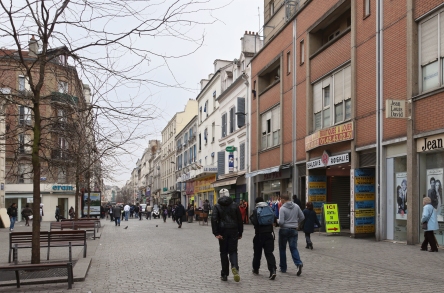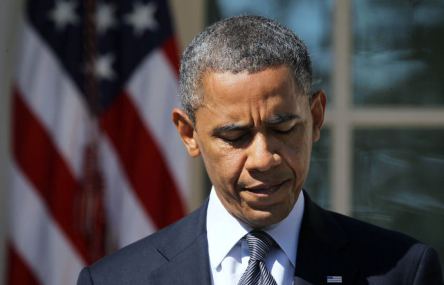By Shy Hardiman
1) A hostage standoff at a hotel in the Malian capital of Bamako ended on Friday after several hours. At least 20 people are believed to be dead and more than 100 hostages were rescued, some of whom suffered injuries. The Blue Radisson hotel where the attack occurred is located in an opulent neighborhood of Bamako and frequented by foreign nationals and diplomats. No information has been released connecting this incident with the ISIS-led attack in Paris earlier in November.
2) The suspected leader of last week’s Paris attacks is believed to have died during a police raid outside the French capital on Thursday. Extremist Abdelhamid Abaaoud’s death comes in the wake of several raids that police have been conducting in an effort to capture the terrorists responsible for the Paris attacks that killed 129 and left more than 350 wounded.

Pedestrians walk down a busy street in Saint-Denis, a northern suburb of Paris where alleged ISIS attack ringleader was killed. Courtesy of WIkipedia.
3) 32 people died and another 80 were injured in a blast at a market in Nigeria on Tuesday. The suspected perpetrators are terrorist organization Boko Haram who sparked international upset and the #BringBackOurGirls movement after claiming responsibility for the kidnapping of 273 Nigerian school girls last year.
4) A newborn was declared Guinea’s last known Ebola case on Monday. More than 11,000 people have died since last year during the West African Ebola outbreaks. Doctors are monitoring the child—whose mother died of the disease—and anyone who recently came into contact with him. Sierra Leone and Liberia were declared Ebola free earlier this year.

President Obama. Courtesy of Flickr.
5) On Thursday, after representatives from the White House announced that President Obama had plans to veto a bill being pushed by the GOP, the House passed it. The bill enforces intensive security screening for refugees immigrating from war-torn areas. Several Republicans across the nation have expressed concern that the terrorists involved in the Nov. 13 Paris attacks were allowed access into France because they were disguised as Syrian refugees.
6) France carried an airstrike over a city in Syria on Sunday. The bombing came just two days after terrorist group ISIS attacked seven different locations in Paris. French authorities targeted the Syrian city of Raqqa because it’s home to a jihadi training camp and an ISIS munitions dump.

